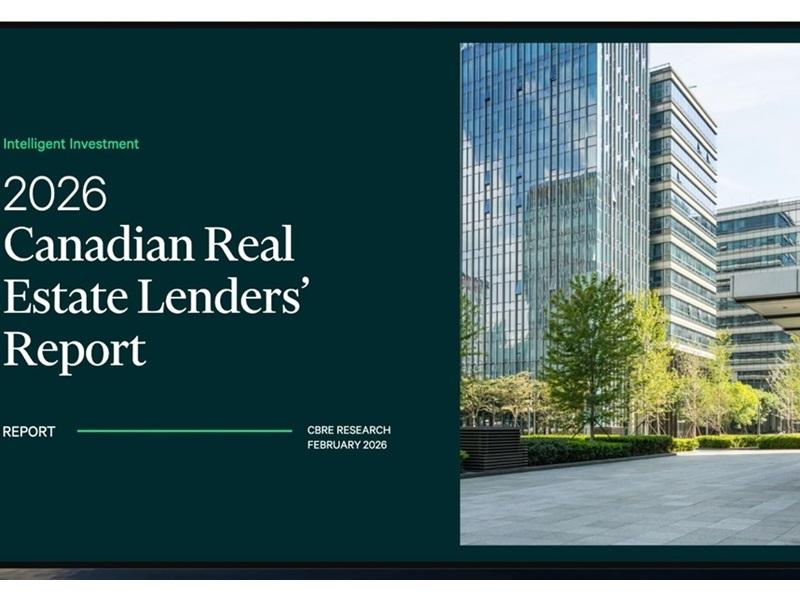
David Goodman of Goodman Commercial. (Courtesy Goodman Commercial)
In Metro Vancouver’s perpetual struggle to build enough rental apartments for its growing population, the suburbs are leaving the city behind. Vancouver brokerage house Goodman Commercial, which focuses on the rental building sales sector, calls the situation “shocking” in its mid-year report.
The City of Vancouver’s immediate neighbours and outlying cities are starting to outpace the urban core in approving and building new rental apartments. That’s a good thing for the suburbs, but also marks a disappointment for Vancouver, said David Goodman, principal with Goodman Commercial, which publishes the Goodman Report.
“Some municipalities, of course, are doing more than what’s expected of them,” he told RENX on the heels of releasing his latest report on the regional market. “I would say the City of North Vancouver, Coquitlam and New Westminster (are doing well).”
Vancouver is not, he said. Two years ago, the City of Vancouver was making bold forecasts for its approval and construction of new rental apartments, but now it’s falling behind.
“The numbers are quite . . . shocking,” the report reads. “But, perhaps we shouldn’t be shocked, considering that the last year and a half were the most challenging we’ve seen in almost two decades.
“Massive provincial and municipal government intervention was the main driver, with the rental apartment sector taking hits left and right.”
Proposed apartments surge in Vancouver suburbs
The number of proposed new rental units in the City of Vancouver this year is 29 per cent fewer than in 2017, while the suburbs have experienced a 147 per cent increase during that time.
Overall, there are 11,377 rental apartment units proposed, approved or being built now in the suburbs, compared to Vancouver’s 7,587, according to Goodman’s accounting.
“The City of Vancouver is trying, I’ll give them credit for that,” Goodman said, “but more often than not, it falls flat.”
He said developers are telling him and Vancouver’s relatively new mayor and council that it takes too long to permit a rental apartment building. They also believe the approval process is too unpredictable and politicized.
“The rental market is such that it’s going to take you two years just to get approvals, and it takes a year-and-a-half to build the bloody thing,” he said. “There are too many cross currents right now for many developers.”
Goodman has been a vocal critic of recent government policy, and that is mirrored in the report. In addition to chiding council members for a “political sell-out” and taking the “expedient route of acting against the citizens’ best interests” the report says politicians on both sides of the political spectrum are to blame.
“The development community isn’t taking this lightly,” the report reads. “There’s evidence in Vancouver that proposed rental projects in particular are being relegated to the ‘cancelled’ category.
“Even the City’s new Moderate Income Rental Housing Pilot Program (MIRHPP) started with 55 applications for 20 spots, but we understand that only seven have gone forward with rezoning applications.”
Big drop in apartment sales, dollar volumes
As for sales activity, Goodman’s report said overall Metro Vancouver building transactions were down by 50 per cent during the first half of 2019, falling from 84 to 42 deals year-over-year.
Dollar volume of those deals fell 62 per cent to $529 million from $1.4 billion, while values fell by 27 per cent.
Twenty-four of the deals in the first half of the year took place in suburban markets. The remaining 18 building sales were in the City of Vancouver.
These drops are taking place amid a low-interest-rate environment in a region with next-to-no rental apartment vacancy, Goodman said.
The bottom line is that recent provincial and municipal government interventions in the rental market are having an impact, he said. “It’s clearly a change from 18 months ago where there was hyperactivity, regardless of pricing.”
Downturn might present opportunity
Ultimately, a downturn makes for decent value for investors who get in now with long-term objectives, Goodman said.
“If anything is priced within the framework of the market, we get tremendous activity from investors,” he said, underscoring that large institutional investors from Ontario have become very aggressive in Vancouver.
“They want large projects,” he said. “We see them hovering over any large project that comes up for sale right now.”







